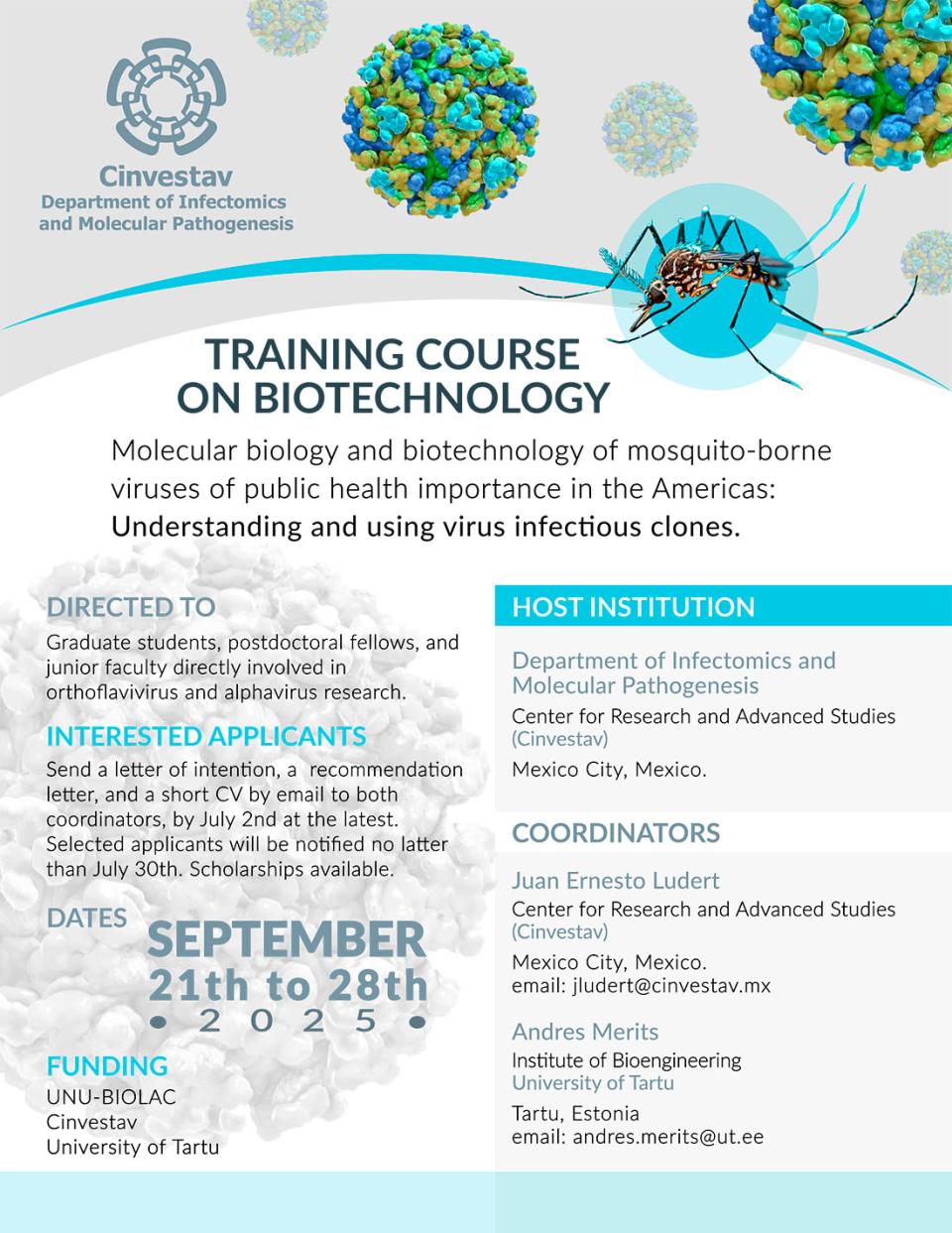Viral diseases transmitted by mosquitoes, such as dengue, Zika, and chikungunya, are a major public health problem in the Americas, according to the Pan-American Health Organization (PAHO).
Their RNA genomes are not amenable to genetic manipulation, and single-point mutations cannot be introduced directly. To circumvent this problem, cDNA copies of full-length viral genomes, called infectious clones, have been constructed. In the so-called layered vectors, the infectious RNA is transcribed inside transfected cells. However, infectious clones are more commonly in vitro transcribed to generate single-stranded RNA molecules like the viral genomes and are therefore infectious. Given the DNA nature, infectious clones are amenable to the introduction of single point mutations, deletions, insertions, and even massive synonymous mutagenesis, which makes them a very powerful tool for the study of viral protein functions, as well as an indispensable instrument for virus-based biotechnology and vaccine development. In addition, infectious clones can be genetically modified to express fluorescent or luminescent protein markers, which makes them formidable tools for pathogenesis studies in vivo or potential antiviral drug screenings. However, infectious clones are often very challenging to construct and characterize. Moreover, their propagation, maintenance, and manipulation in the laboratory require a certain level of expertise in molecular virology. While infectious alphavirus clones are generally considered “easy” and can be constructed using standard high-copy number plasmids, the clones of flaviviruses are invariably “difficult” and much more challenging to handle and manipulate.
The main objective of the activity is to familiarize graduate students, post-doctoral fellows, and junior faculties working in research laboratories in Mexico, Central and South America, and the Caribbean with the use and manipulation of infectious clones of alpha- and orthoflaviviruses. The activity will include both theoretical and practical hands-on sessions. Participants are expected to gain a broader vision of the molecular biology of alpha- and flaviviruses of importance to the region and the experimental potentialities of infectious clones and gain the methodological basis to implement infectious clones in their own laboratories.
Theoretical content: 5 lectures covering fundamental aspects of the biology of flavivirus (dengue, Zika, yellow fever) and alphaviruses (chikungunya, Mayaro); 1 lecture covering fundamental aspects of the vector mosquito, including innate immune responses; 1 lecture covering fundamental aspects of diagnosis and 1 of prevention (vaccines) of diseases caused by ortho flaviviruses or alphaviruses; 1 lecture covering fundamental aspects on the laboratory handling of large cloning vectors; and two lectures covering fundamental aspects of virus infectious clones, for a total of 11 lectures, all given by experts in the field.
Laboratory content: 6 practical sessions covering the transformation of bacteria with large plasmids (containing the infectious clones); harvesting and purification of large plasmids; in vitro transcription; transfection of cells in culture; visualization of infected cells (immunofluorescence, reporter gene autofluorescence or luciferase activity); harvesting and quantification of progeny viruses.
Application procedure
Interested applicants should send a letter of intention, a recommendation letter and a short CV to both course coordinators:
Dr. Juan Ludert, jludert@cinvestav.mx
Dr. Andres Merits, andres.merits@ut.ee
Last day to apply: July 2nd, 2025.

